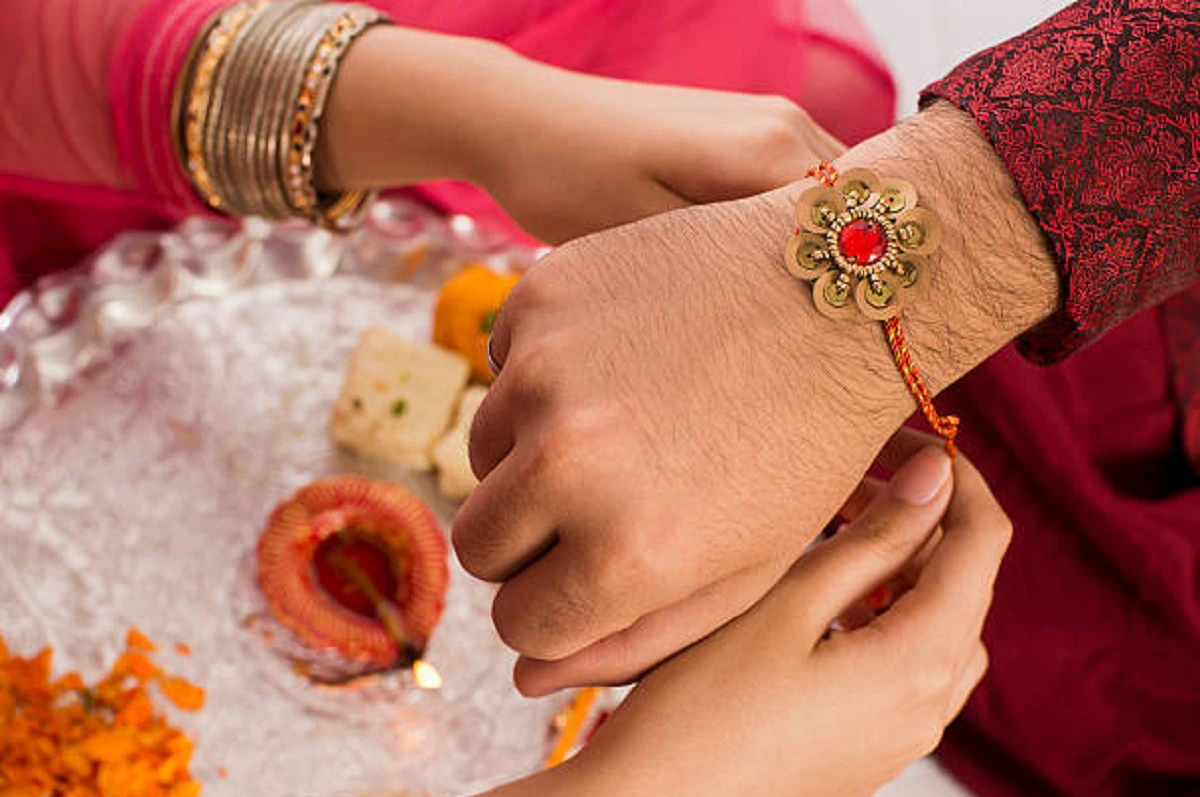

A representative image
As the auspicious festival of Raksha Bandhan, also known as Rakhi, approaches, families across the world are gearing up to celebrate the cherished bond between brothers and sisters. This year, the festival, will be observed on August 19, 2024, coinciding with the Purnima Tithi in the month of Shravan.
Date and Shubh Muhurat for Raksha Bandhan 2024
Raksha Bandhan is celebrated on the full moon day of Shravan (Purnima), and the date varies each year according to the Gregorian calendar. In 2024, the Purnima Tithi begins on August 18 at 03:04 AM and ends on August 19 at 11:55 PM, providing a full day for siblings to partake in the rituals and festivities.
Bhadra Kaal, an inauspicious period according to Hindu dharma, also falls on this day. The Bhadra Face period will be from 10:53 AM to 12:37 PM, with the Bhadra Tail occurring from 09:51 AM to 10:53 AM. The Bhadra Kaal concludes at 01:30 PM, after which the Shubh Muhurat, or the auspicious time to tie the Rakhi, begins.
Shubh Muhurat for Raksha Bandhan 2024
–Raksha Bandhan Muhurat for Rakhi: 01:30 PM to 08:27 PM
–Shubh Muhurat: 01:30 PM to 03:39 PM
–Auspicious Pradosh Period: 06:12 PM to 08:27 PM
For those planning their celebrations, here are the city-wise timings:
In 2024, the auspicious time for celebrating Raksha Bandhan varies slightly across different cities. In New Delhi, the Shubh Muhurat is from 1:30 PM to 9:08 PM, while in Pune, it extends until 9:14 PM. Chennai’s auspicious period lasts from 1:30 PM to 8:46 PM, and in Kolkata, it is from 1:30 PM to 8:19 PM. Hyderabad observes the Muhurat from 1:30 PM to 8:55 PM, whereas Ahmedabad enjoys a slightly longer window until 9:22 PM. For residents of Noida, the timing is from 1:30 PM to 9:07 PM, and in Jaipur, it lasts until 9:12 PM. In Mumbai, the Muhurat extends from 1:30 PM to 9:19 PM, while in Gurgaon, it is from 1:30 PM to 9:08 PM. Bengaluru will observe the Muhurat from 1:30 PM to 8:56 PM, and Chandigarh from 1:30 PM to 9:11 PM.
Significance of Raksha Bandhan
Raksha Bandhan is not just a ritualistic tying of a Rakhi; it is a celebration of the unique and irreplaceable bond between brothers and sisters. This relationship, often marked by affection, care, and a bit of playful rivalry is one of the most profound connections in human life. The festival symbolises the sister’s prayers for her brother’s well-being, and the brother’s pledge to protect and support her in all circumstances.
This day holds deep roots in Hindu dharma, where stories of sibling bonds like that of Bhagwan Krishna and Draupadi or Yudhishthira and his brothers remind us of the strength and sanctity of this relationship.
Rituals and Traditions of Raksha Bandhan
The day of Raksha Bandhan begins early, especially for women, who start preparations by cooking delicious meals and dressing in festive attire. The ritual of Rakhi begins with decorating a plate (thali) with kumkum, rice grains (akshat), sweets, and the Rakhi itself.
The sister then applies a tilak on her brother’s forehead, ties the Rakhi on his right wrist, and offers sweets. In return, the brother presents a gift to his sister, symbolising his promise to protect her. Some younger brothers may even touch their sister’s feet as a mark of respect. The Rakhi ceremony concludes with the sisters breaking their fast.
Importance of Avoiding Bhadra Kaal
It is advised not to tie the Rakhi during Bhadra Kaal, as it is considered inauspicious. According to legend, Bhadra, the daughter of the Sun God and sister of Shani Dev, had a malevolent influence that hindered all auspicious activities. The mythological tale also suggests that Shurpanakha tied a Rakhi to her brother Ravana during Bhadra Kaal, leading to his eventual downfall.
Leave a Comment